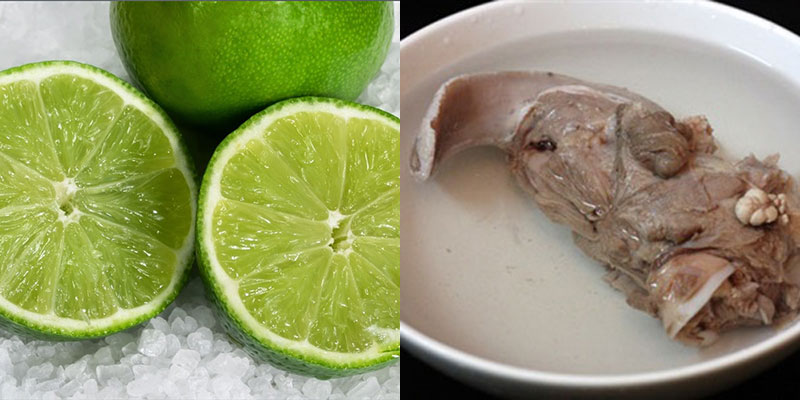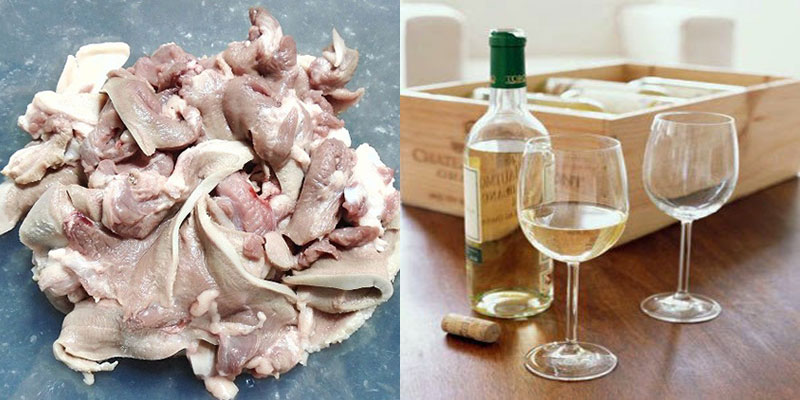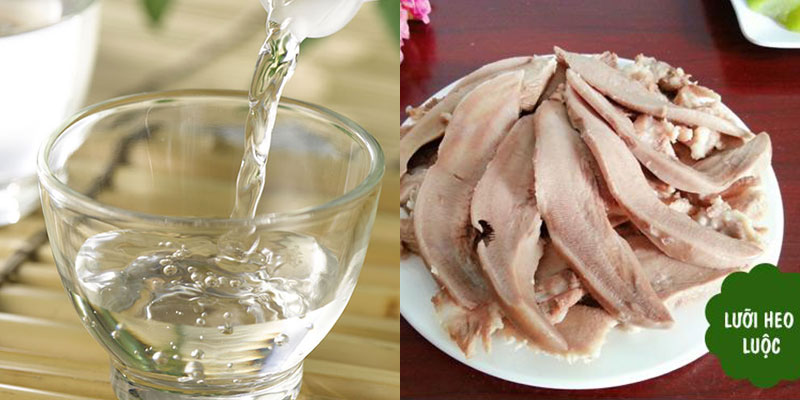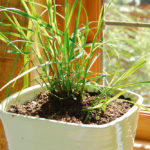Lemon and Tongue Cleaning
After purchasing the pork tongue, rinse it thoroughly under cold water. Fill a pot with water and bring it to a gentle boil before adding the tongue and cooking for approximately 5 minutes. Remove the tongue, and scrape away any white membrane that may be clinging to the surface. Rinse again with clean water. Next, squeeze half a lemon and sprinkle salt over the tongue, rubbing it thoroughly to eliminate any unpleasant odors and brighten its appearance. Give it a good rub, and then rinse once or twice under running water to ensure it’s perfectly clean. Leave it to drain as you prepare to cook it further.

Ginger and White Onion
For this method, ensure the tongue is clean and ready for cooking. Place it in a pot with sliced ginger and white onion. Boil for around 10 minutes, and then remove the tongue, scraping away any remaining white bits from the surface, including the throat area, to eliminate any lingering odors.
Rice Wine
Rinse the tongue with rice wine, and then rub salt all over it. Follow this by briefly boiling the tongue in hot water and scraping away the white surface.

Lemongrass and Salt
Gently crush the lemongrass and add it to a pot of water with a pinch of salt. Bring this to a boil. Meanwhile, rinse the tongue and briefly blanch it in the boiling lemongrass water. Remove and scrape away the white surface; the lemongrass will help neutralize any unpleasant odors and effectively clean the tongue.

Vinegar Treatment
As a final option, try this: briefly blanch the tongue, and then remove it and scrape it clean. Pour vinegar into a large bowl and soak the tongue in it for about a minute. Rinse thoroughly with cold water, and your tongue will be ready for your chosen recipe.

These natural methods for cleaning pork tongue will ensure it’s ready for your favorite recipes. Give them a try, and enjoy the results!
For further reading:
Source: phunutoday.vn
16 Best Houseplants to Keep Mosquitoes Away
Having to deal with pesky insects such as flies and mosquitoes is something that most of us have probably experienced. Not only do these troublesome critters cause unsanitary spaces, they can also spread infectious diseases. While insecticides do the job, why not try something a little different and opt for plants to repel these insects while adding to the aesthetics of your home? Read on to learn more about the following plants that could help.





































